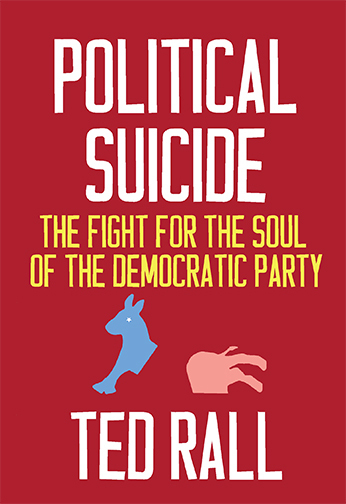Ted Rall for February 19, 2015
Transcript:
You have to respect others' religion- even if it's not your religion, or you have no religion at all. (Man 1: I'd never draw the prophet Muhammed. Courtesy. Peace be upon him.) (Man 2: why you calling him "the prophet?" yer zoroastrian.) However, you aren't expected to show any difference to their politics. (Man 1: You're socialist?!? What an idiot! I am a liberal and thus perfect!) Or their tastes. (Man 1: Your music and books and clothes and comics and car are worthless- just like you.) Unless they're intertwined with religion. (Man 2: God tells me to be into that stuff.) (Man 1: Respect.)







Michael Peterson Premium Member about 9 years ago
Ted … oh, never mind. Hard to argue with a guy who makes no sense.
moosemin about 9 years ago
Oh boy! The righties are going to have a lot of fun today with panel 2!
superposition about 9 years ago
http://en.wikipedia.org/wiki/First_Council_of_Nicaea
Darsan54 Premium Member about 9 years ago
Thing is you just don’t want to be a *ick in any religion or belief system. Is that so hard to understand?
HabaneroBuck about 9 years ago
You don’t have to respect anyone’s religion if you don’t want to, Ted. As you have pointed out, that’s fuzzy thinking. Big boys are quite able to defend their views…the ones that can’t are usually the ones that resort to violence.
twclix about 9 years ago
Yup, Ted, telling like it is, again. This divided view between religion on one hand and politics and culture on the other, makes for some cognitive dissonance, that is, for those who have cognition.
wcorvi about 9 years ago
Yea, folks, when it comes to religion, I think it’s spelled profit.
PubliusCornelius about 9 years ago
Ted is right on. Religion is a human idea like any other human idea. It should not be entitled to any more presumption of respect or deference than any other human idea. As the great Thomas Jefferson said, “Fix reason firmly in her seat, and call to her tribunal every fact, every opinion. Question with boldness even the existence of a god; because, if there be one, he must approve the homage of reason rather than of blind-folded fear.”
—“It is . . .blasphemy against religion to suppose it cannot stand the test of truth and reason.”
—“Nothing but free argument, raillery and even ridicule will preserve the purity of religion.”
—“Ridicule is the only weapon which can be used against unintelligible propositions. Ideas must be distinct before reason can act upon them; and no man ever had a distinct idea of the [T]rinity. It is the mere Abracadabra of the mountebanks calling themselves the priests of Jesus.”
—And “The priests of the different religious sects … dread the advance of science as witches do the approach of daylight.”
mattro65 about 9 years ago
I respect others right to believe what they want and keep my opinion about religion to myself. That’s because I long ago grew tired of being verbally abused for being an atheist.
lonecat about 9 years ago
Furniture maker adheres to the heresy known as Arianism. Here’s a passage from the wiki article:Arianism is the nontrinitarian, heterodoxical teaching, first attributed to Arius (c. AD 250–336), a Christian presbyter in Alexandria, Egypt, concerning the relationship of God the Father to the Son of God, Jesus Christ. All mainstream branches of Christianity consider the teaching to be heretical. Arius asserted that the Son of God was a subordinate entity to God the Father. The Ecumenical First Council of Nicaea of 325 deemed it to be a heresy. At the regional First Synod of Tyre in 335, Arius was exonerated.1 After his death, he was again anathemised and pronounced a heretic again at the Ecumenical First Council of Constantinople of 381.2 The Roman Emperors Constantius II (337–361) and Valens (364–378) were Arians or Semi-Arians.
The Arian concept of Christ is that the Son of God did not always exist, but was created by—and is therefore distinct from—God the Father. This belief is grounded in the Gospel of John (14:28)3 passage: “You heard me say, ‘I am going away and I am coming back to you.’ If you loved me, you would be glad that I am going to the Father, for the Father is greater than I.”
Arianism is defined as those teachings attributed to Arius, which are in opposition to orthodox teachings on the nature of the Trinity and the nature of Christ. These orthodox teachings, while always held by the Church, were formally affirmed by the first two Ecumenical Councils of the Church.
Arianism is also often used to refer to other nontrinitarian theological systems of the 4th century, which regarded Jesus Christ—the Son of God, the Logos—as either a created being (as in Arianism proper and Anomoeanism), or as neither uncreated nor created in the sense other beings are created (as in Semi-Arianism).